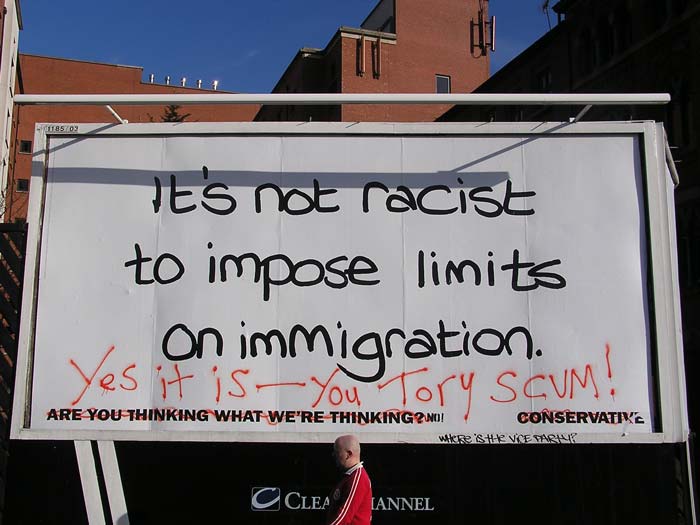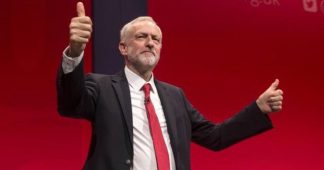By Charles Woolfson
Linköping University, Sweden
21 February 2018
The European Commission has from the outset adopted a determined posture of “no concessions” in the negotiations with the UK on Brexit (BBC News, 19 June 2007). In the view of Brussels and leading member states the outcome of Brexit process must be that the UK economy becomes less prosperous outside of the European Union’s single market and customs union, if only pour encourager les autres. As the Commission’s chief negotiator Michel Barnier put it, in a hastily retracted statement, “we intend to teach people… what leaving the single market means” (BBC News, 3 September 2017). Given the asymmetric character of the relative negotiating strengths of the Commission backed by the remaining 27 member states, visavis the UK, it seemed likely that Barnier’s stated intentions would be realised. How then to make sense of the current conjuncture? This short contribution argues that the determining of a mutually beneficial or otherwise outcome rests on a “regulatory conundrum”.
Phase 1 of negotiations with the European Commission concluded in December 2017, with the UK government agreeing to the Commission’s initial demand for a “divorce bill” (to be augmented by enhanced pension payment charges for former UK Brussels employees) that would commit the UK to making contributions to the EU budget until 2020. In addition, the UK offered firm guarantees for EU citizens already living in the UK. Those currently in the UK would be allowed to continue living and working, and those already in the country who did not yet have permanent residency would be able to acquire “settled status” after Brexit. Freedom of movement would continue for two years after March 2019, although new arrivals would have to register, and in an important later qualification, May seemed to suggest that those arriving after Brexit day would not be eligible for the same rights as EU citizens currently in the UK in terms of access to social benefits and residency status. In return, UK citizens in living in an EU country would preserve their EU citizenship rights, although they would not retain them if they moved to another EU country. For eight years after Brexit, the UK courts would refer cases involving EU nationals to the European Court of Justice for interpretation (European Commission, 2017a).
The often-frantic phase 1 talks, nearly stalled at the last-minute due to an intervention from the DUP, demanding that Northern Ireland’s relationship within the UK remain on the same footing as currently (somewhat at odds with the UK government’s stated intention to leave the EU customs union). Assurances that there would be no “hard border” or customs checkpoints reinstated between the Republic of Ireland and the north (the UK’s new land border with the EU), were sufficient to temporarily mollify the DUP’s leadership, although much remained unclear as to the detail of how this would work in practice. No doubt, further disagreements would emerge as the Commission translated this agreement into a legally-binding text. What was apparent was that the Commission had imposed its main negotiating priorities on the UK rather than the other way around (Politico, 2017a). Nevertheless, the “successful” completion phase 1, thus affirming “sufficient progress” to proceed to the all-important next phase of trade discussions, was enthusiastically endorsed by a mid-December meeting of the European Council of Ministers representing the heads of government of the other 27 member states. The “breakthrough” as such, probably had as much to do with the desire on the part of the Commission not to undermine further May’s tenuous grip on the premiership, thereby creating the unpalatable prospect of her replacement by a “hard Brexiteer” such as Foreign Secretary, Boris Johnson.
A two-year “transitional” period would allow time for the deeply concerned UK business community to adapt to the new conditions of Brexit after March 2019. However, such transitional arrangements were again conditional on the UK accepting terms set by the European Commission, including the demand that the UK not take “any action or initiative…likely to be prejudicial to the Union’s interests”… “in any international organisation, agency, conference or forum” (European Commission, 2018). This effectively prohibits the UK from reaching independent trade deals (although not from exploring bilateral agreement possibilities) during the transitional period. As the Commission bluntly put it, during this period “For the purposes of the Treaties…the parliament of the United Kingdom shall not be considered to be a national parliament,” adding for good measure, “during the transition period, the Bank of England shall not be considered to be a national central bank” (European Commission, 2018). Michel Barnier for the European Commission detailed the sanctions available to the EU in the event of any deviation from EU rules by the UK during the transition period. These sanctions, in first draft at least, were to be imposed directly via the Commission rather than the more lengthy procedures of the European Court of Justice. They included the possible denial of access to the single market for specific sectors, and potentially, the grounding of civil aviation flights from the UK to continental Europe (The Guardian, 6 February 2018). Barnier, for his part, warned that a transitional agreement was “not a given” and that “substantial” differences remained on key issues such as the rights of EU citizens, the right of the UK to object to new EU rules and laws, and whether the UK could continue to participate in new justice and home affairs policies during the transition period (BBC News, 8 February 2018). The hardening of the EU’s negotiating stance, underlining that the UK would be obliged to accept any new EU laws without recourse or representation long after the official Brexit date, provoked leading Brexiteer MPs to accuse the Commission of attempting to turn Britain into a “vassal state” (The Times, 17 December 2017). The tone of the Commission documentation presaged the contentious character of future discussions.
These crucial phase 2 trade talks are scheduled to commence in the spring of 2018 and promise to be difficult, not least due to the slow progress of previous negotiations, leaving little time (less than a year) to agree a wide-ranging set of future trading arrangements. The Commission and key European leaders, such as the German Chancellor Angela Merkel, made abundantly clear that the UK would not be allowed to “cherry-pick” those parts of current advantages adhering to the UK’s membership of the single market. For example, there would be no continuation of full “passporting rights” based on EU recognition or granting of “generalized equivalence” to UK financial rules and regulations. Thus, the lucrative provision of financial services by UK banks across the whole European Union seems unlikely, unless of course the UK agreed to accept the four fundamental EU “freedoms” including the contentious freedom of movement. Both sides therefore have significantly divergent expectations of what can ultimately be achieved. The UK is seeking to achieve a “bespoke” trade deal, while the EU will likely offer, at best, a trade deal similar to the one with Canada. This would be well short of current trading arrangements, or of the UK’s demand for a deal which would equate to a so-called Canada “plus, plus, plus” to include financial services. Given this mismatch of expectations and goals, compounded by a mutual lack of clarity as to what sort of future relationship will pertain between the EU and a post-Brexit Britain, the near certainty is that Brexit day, never mind the termination of the agreed transition period in December 2020, will arrive with discussions about a future relationship still ongoing. The possibility of the UK eventually “crashing out” of the EU with a “no-deal Brexit” should not be underestimated.
At the same time, a re-assertive Europe of the remaining 27 member states, at least temporarily unified by determination to move “beyond Brexit”, has emboldened European Commission President Juncker to trumpet those “partners across the globe … lining up at our door to conclude trade agreements with us” (J-C Juncker, 13 September 2017). Countries that would be prime candidates for trading agreements with a post-Brexit Britain such as Australia and New Zealand were among those identified as future EU partners. Juncker has attempted to position the European Union as the real champion of global free trade in contrast to a “protectionist” USA, with the triumphal announcement on the same day as the Brexit phase 1 agreement was reached of a wide-ranging trade agreement with Japan. To bolster the EU’s claim to champion global free trade, there was the prospect in view of an imminent deal with the Mercosur bloc of South American countries, along with discussions for a new agreement of increasing intensity with Mexico (Politico, 2017b).
Following Brexit, the UK will be effectively a “third country” for purposes of access to the European single market, in all likelihood facing additional tariff (and non-tariff) barriers, unless it opts for a Norway-style agreement (offering single market access but requiring EU freedom of movement and acceptance of all new EU regulations as a “rule-taker”). Such an outcome is unlikely given the politics of Brexit and poses a further dilemma. Having not independently negotiated trade deals on its own behalf during forty years of EU membership, the UK will probably be faced with the need to adopt the expedient solution of “cut and paste” of existing EU agreements into UK equivalents. However, any new trade deal may offer an opportunity to foreign parties to leverage significant concessions from the UK on regulatory issues. A straw in the wind is, for example, the free trade agreement proposed (albeit in a preliminary way) with the US. This would entail the UK loosening its environmental and safety standards, and surrendering control over the setting of key national standards to international arbitration bodies (Bloomberg, 26 July 2017). Regulatory standards and their enforcement, particularly with regard to labor standards, are especially vulnerable under the auspices of the World Trade Organization (WTO) rules in a context of weak overall global governance (Tsogas, 1999; WTO, nd). A “hard Brexit” in which a post-Brexit Britain trades with the EU under WTO rules would therefore provide further incentive for a Conservative government to dismantle already weak UK labour rights as it seeks to engage with new trading partners.
Fears of regulatory competition from a post-Brexit Britain are therefore uppermost in the minds of Europe’s leaders. Both Donald Tusk, President of the European Council representing the combined EU heads of government and Michel Barnier, have separately warned that a future UK trade deal with Europe “must ensure a level playing field, in terms of competition and state aid, and must encompass safeguards against unfair competitive advantages through, inter alia, fiscal, social and environmental dumping” (The Telegraph, 31 March 2017; The Independent, 20 July 2017). Barnier has queried, “It is up to the British to tell us whether they still adhere to the European model” adding, “their answer is important because it directs the discussion on our future partnership and the conditions of its ratification” (Bloomberg, 9 November 2017). In response, UK Chancellor Philip Hammond (seeking to maintain the “softer” option of future UK access to the single market), denied that the Conservative government wanted to turn the UK into a deregulated, Singapore-style economy. Post-Brexit, said Hammond, Britain would maintain a “social, economic and cultural model that is recognizably European”, claiming, “I often hear it said that Britain is considering participating in unfair competition in regulation and tax. That is neither our plan nor our vision for the future” (The Telegraph, 30 July 2017). By contrast, Boris Johnson, (as a leading proponent of “hard Brexit”) has argued for the enticing prospects awaiting a deregulated post-Brexit Britain. Condemning the European Commission for “trussing the nations together in a gigantic and ever-tightening cat’s cradle of red tape”, Johnson lamented, “countries that look to us for a lead on deregulation, and free markets, and trying to resist the centralising role of the Commission”, are “all too often….less powerful than the great centripetal force of integration” (The Telegraph, 15 September 2017). Johnson’s characteristically combative and colourful intervention forced May in her much-heralded “Florence speech” intended to break the “deadlock” over phase 1 negotiations, to reassert that “regulatory issues are crucial”. The Prime Minister affirmed “we share a commitment to high regulatory standards. People in Britain do not want shoddy goods, shoddy services, a poor environment or exploitative working practices and I can never imagine them thinking those things to be acceptable” (Theresa May, 22 September 2017). For his part, David Davis, the UK minister responsible for negotiating Brexit, has reiterated that the UK is not seeking an “Anglo-Saxon race to the bottom” in environmental and labour standards (Politico, 2018). Yet such assurances would appear to be belied by internal government policy proposals from the Department for Business, Environment and Industrial Strategy referring to “maximizing regulatory opportunities” to boost the UK economy following Brexit, specifically mentioning the potential for removing employment protections and, in particular, the EU Working Time Directive (The Independent, 9 February 2018). The imminent resolution of these contested views regarding the regulatory contours of post-Brexit Britain appears unlikely in a fractured Conservative administration, saddled with a weakened Prime Minister, beset by bitter internal Cabinet and party feuding, rumors of plots to replace her leadership, and worn down by ongoing unsavory sex scandals. Nevertheless, with phase 2 trade talks about to commence some resolution of underlying differences between “hard” and “soft” Brexit supporters in the government is now urgent.
The fundamental issue to be resolved underlying the divergent negotiating positions of the UK and the European Commission is therefore the degree of “regulatory alignment” or “regulatory divergence” that a post-Brexit Britain would seek with EU rules and regulations, or indeed, would be permitted in the future. For the European Union, the prospect of an offshore Singapore-style deregulated Britain, “on its doorstep”, undermining the “level playing field” among the remaining 27 member states as it were, is unacceptable. Internal Commission documentation already warned of the danger posed by future UK “export processing zones”, a threat to health and safety standards, the dilution of employee consultation rights in the event of redundancies, not to mention undermining collective bargaining rights (European Commission, 2017b). All of this may be dismissed as so much posturing on the part of the Commission, given its own rather poor record in defending collective bargaining, for example, actively undermined by its search for Europeanwide “flexicurity”. While accepting that a post-Brexit Britain would have “regulatory autonomy” in the future, the Commission is also seeking to limit that autonomy via “non-regression clauses” that will prohibit the dilution of the existing standards below pre-Brexit levels (European Commission, 2017b). Thus, specific “sanctions” and “cooperation procedures” to minimize divergences and prevent disputes in the future are foreseen. In the face of the legally-driven mode of defensive negotiation adopted by the Commission, assurances by David Davis that the UK offers “mutual trust” on matters of regulation, seem at best naive. Regulatory compliance with EU rules is the conundrum therefore that will ultimately determine what kind of Brexit eventually ensues.
References
BBC News. 19 June 2017. Brexit negotiations: Barnier rules out ‘concessions’. http://www.bbc.com/news/uk-politics-40321271 (accessed 17 June 2017).
BBC News. 3 September 2017. Brexit: UK to be ‘educated’ about consequences, says Barnier. http://www.bbc.com/news/uk-politics-41140564 (accessed 7 September 2017).
BBC News. 9 February 2018. Brexit: Transition period not ‘a given’, says Barnier. http://www.bbc.com/news/uk-politics-43001931 (accessed 10 February 2018).
Bloomberg. 26 July 2017. U.K. Won’t Accept Chlorine-Washed Chicken in U.S. Trade Deal. Thomas Penny and Charlotte Ryan. https://goo.gl/tUSvGz (short URL) (accessed 27 July 2017).
Bloomberg. 9 November 2017. Does the U.K. Want to Be More Like America? The EU Wants to Know.’ Ian Wishart. goo.gl/UuSfdy (short URL) (accessed 9 November 2017).
European Commission. 2017a. Joint report from the negotiators of the European Union and the United Kingdom Government on progress during phase 1 of negotiations under Article 50 TEU on the United Kingdom’s orderly withdrawal from the European Union. 8 December 2017. TF50 (2017) 19 – Commission to EU 27.
https://ec.europa.eu/commission/sites/beta-political/files/joint_report.pdf (accessed 14 February 2018). European Commission. 2017b. Miscellaneous paper. Slides on a Level Playing Field. https://ec.europa.eu/commission/publications/slides-level-playing-field_en (accessed 14 February 2018).
European Commission 2018. Position paper “Transitional Arrangements in the Withdrawal Agreement”. Origin: European Commission, Task Force for the Preparation and Conduct of the Negotiations with the United Kingdom under Article 50 TEU. https://ec.europa.eu/commission/sites/beta-political/files/transition.pdf (accessed 12 February 2018).
Guardian, The. 6 February 2018. Brexit: EU to have power to punish UK at will during transition. https://www.theguardian.com/politics/2018/feb/06/brexit-eu-power-punish-uk-transitionperiod-sanctions (accessed 14 February 2018).
Independent, The. 20 July 2017. Brexit: EU won’t sign trade deal if UK starts deregulation race to the bottom, Brussels warns. Jon Stone. http://www.independent.co.uk/news/uk/politics/brexit-eu-trade-deal-workers-rights-taxhaven-michel-barnier-environmental-legislation-a7851761.html (accessed 20 July 2017).
Independent, The. 9 February 2018. Brexit: Official document raises prospect of tampering with workers’ rights to boost economy. http://www.independent.co.uk/news/uk/politics/brexitworker-rights-impact-assessment-eu-withdrawal-leaked-theresa-may-a8201176.html (accessed 10 February 2018).
Juncker, J-C. 13 September 2017. President Jean-Claude Juncker’s State of the Union Address 2017. European Commission Press release. Brussels 13 September 2017. http://europa.eu/rapid/press-release_SPEECH-17-3165_en.htm (accessed 14 September 2017).
May, Theresa MP. 22 September 2017. PM’s Florence speech: a new era of cooperation and partnership between the UK and the EU. GOV.UK. https://www.gov.uk/government/speeches/pms-florence-speech-a-new-era-ofcooperation-and-partnership-between-the-uk-and-the-eu (accessed 23 September 2017).
Politico. 2017a. Brexit deal annotated. 8 December 2017. https://www.politico.eu/article/brexitdeal-document-annotated/ (accessed 8 December 2017).
Politico. 2017b. EU takes over global trade stage. 8 December 2017. https://www.politico.eu/article/eu-takes-over-global-trade-stage/ (accessed 8 December 2017).
Politico. 2018. David Davis: No ‘race to the bottom’ post Brexit. 19 February 2018. https://www.politico.eu/article/david-davis-no-race-to-the-bottom-post-brexit/ (accessed 20 February 2018).
Telegraph, The. 31 March 2017. EU will ban UK from cutting tax or scrapping regulation as price of trade deal’. http://www.telegraph.co.uk/news/2017/03/31/brexit-donald-tuskarticle-50-eu-watch-live/ (accessed 23 July 2017).
Telegraph, The. 30 July 2017. Philip Hammond: UK to remain “recognisably European” post-Brexit. http://www.telegraph.co.uk/news/2017/07/31/philip-hammond-uk-remainrecognisably-european-post-brexit/ (accessed 30 July 2017).
Telegraph, The. 15 September 2017. Boris Johnson: My vision for a bold, thriving Britain enabled by Brexit. http://www.telegraph.co.uk/politics/2017/09/15/boris-johnson-visionbold-thriving-britain-enabled-brexit/ (accessed 15 September 2017).
Times, The. 17 December 2017. Boris Johnson: Brexit mustn’t leave us a ‘vassal state’.https://www.thetimes.co.uk/article/boris-johnson-brexit-mustnt-leave-us-a-vassal-statep9zrf9n6s (accessed 17 December 2017).
Tsogas, G. 1999. Labour Standards in International Trade Agreements: An Assessment of the Arguments. The International Journal of Human Resource Management 10 (2): 351–375. World Trade Organisation (WTO). nd. Labour standards: consensus, coherence and controversy. https://www.wto.org/english/thewto_e/whatis_e/tif_e/bey5_e.htm (accessed 23 October 2017).











